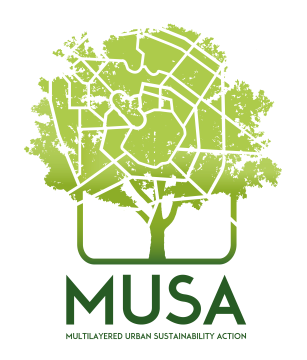B-YOUth 25. Future Bodies of Participation
PROGRAM DURATION |
4 days |
|---|---|
DATES |
15-18th June 2025 |
TUITION FEE |
€580
|
APPLICATION DEADLINE |
15 april 2025 |
CONTACT |
byouth.summer@unimib.it |
The 2025 edition of the B-YOUth Summer School (see 2024 and 2023 editions), invites participants to explore the interplay between emerging forms of youth participation and the threshold(s) of their visibility, investigating how new modes of participation might help re/shape collective futures.
Youth participation has long been a cornerstone of democratic engagement, yet its forms and meanings continue to evolve, shaped by the intersection of societal, technological, and spatial dynamics. In an era where the boundaries between digital and physical participation are blurring, how can we discern where new modes of engagement emerge, and how visible—or invisible—they are in the territories they occupy? What forms of power, inclusion, and exclusion define these thresholds, and how do they shape the future(s) of participation?
The program will focus on the dynamics of visibility across various contexts, delving into questions about what becomes perceptible today and how these forms of visibility might evolve. This includes interrogating how visibility is produced, sustained, or constrained by power dynamics—from the commodification and regulation of digital spaces to the interplay between digital and non-digital realms, bodily presence, gender and sexuality, and the transformative potential of participation to influence socio-political and technological landscapes. What does it mean to interrogate the
boundaries of visibility for these bodies, and how can this interrogation foster greater inclusivity and equity?
These dynamics challenge educators, policymakers, and researchers to rethink traditional paradigms and co-create pathways that are inclusive, equitable, and responsive to the changing realities of young people. How can these efforts inspire the younger generations to not only participate, but also reimagine the contours of collective futures?
Combining lectures, seminars and workshops led by internationally renowned scholars with group-work activities, the B-YOUth Summer School 2025 will provide an inspiring forum for young researchers. The program offers interdisciplinary training designed to foster critical reflection and innovation. Participants will engage with cutting-edge theoretical and methodological debates and explore transformative frameworks for understanding and enhancing participation. Through collaborative activities, the program will create a stimulating environment to interrogate and envision the futures of participation.
- Youth, democracy and agency
- Power, bodies and forms of visibilty
- Theories of inclusion and participation
- Collective futures and participation
- Theories of education and social justice
Group work
-
Developing a research proposal on the topics of the summer school
Invited speakers
- Cath Larkins, Professor School of Health, Social Work and Sport (University of Central Lancashire, UK)
- Paolo Graziano, Professor of Political Science and Public Policy (University of Padova, Italy; OSE, Bruxelles)
PhD students and early career researchers. Priority will be given to candidates working in education, politics, philosophy, psychology, geography, anthropology. If you are not working in any of these fields but would like to be considered, please contact us to discuss your eligibility. Gender balance will be taken into account.
Activities will begin on June 15th afternoon (check in after 15:30) and will end on June 18th with the final lunch.
The Summer School can host up to 20 participants (application deadline 30th March 2025). We expect to be able to notify successful applicants by mid-April 2025.
Re-opening applications until 15th April 2025
- Elisabetta Biffi - University of Milano-Bicocca
- Stefano Malatesta - University of Milano-Bicocca
- Stefano Pippa - University of Milano-Bicocca
- Andrea Galimberti - University of Milano-Bicocca
- CV
- ID card or passport
You are required to enroll through the online application form (LINK).
After receiving the selection notification, you would be required to pay the course tuition fee within a specified period.
NB: in case you are not able to upload the required documents, please send them to our email address: byouth.summer@unimib.it
MONTE BARRO REGIONAL PARK (COMO LAKE) - All lectures and activities will take place at the Hostel Parco del Monte Barro. From here you can enjoy the beauties of this Regional Natural Park, with breathtaking views over Lake Como and the surrounding mountains and lakes of the Brianza. A shuttle service connecting Lecco train station and the Hostel will be available on the first and last day of the School.
Please note that at the Hostel single rooms are not available. All participants will be assigned to shared rooms (with 2, 3 or 4 beds). Each room has a private bathroom.
For further information, contact:
Multilayered Urban Sustainability Action

Event realised within the MUSA – Multilayered Urban Sustainability Action – project, funded by the European Union – NextGenerationEU, under the National Recovery and Resilience Plan (NRRP) Mission 4 Component 2 Investment Line 1.5: Strenghtening of research structures and creation of R&D “innovation ecosystems”, set up of “territorial leaders in R&D”.


